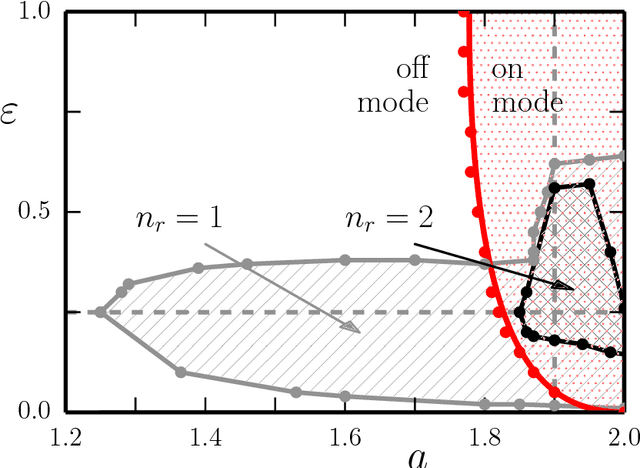Tim Jahn
Fast Summation of Radial Kernels via QMC Slicing
Oct 02, 2024Abstract:The fast computation of large kernel sums is a challenging task, which arises as a subproblem in any kernel method. We approach the problem by slicing, which relies on random projections to one-dimensional subspaces and fast Fourier summation. We prove bounds for the slicing error and propose a quasi-Monte Carlo (QMC) approach for selecting the projections based on spherical quadrature rules. Numerical examples demonstrate that our QMC-slicing approach significantly outperforms existing methods like (QMC-)random Fourier features, orthogonal Fourier features or non-QMC slicing on standard test datasets.
The sensorimotor loop as a dynamical system: How regular motion primitives may emerge from self-organized limit cycles
Mar 14, 2018



Abstract:We investigate the sensorimotor loop of simple robots simulated within the LPZRobots environment from the point of view of dynamical systems theory. For a robot with a cylindrical shaped body and an actuator controlled by a single proprioceptual neuron we find various types of periodic motions in terms of stable limit cycles. These are self-organized in the sense, that the dynamics of the actuator kicks in only, for a certain range of parameters, when the barrel is already rolling, stopping otherwise. The stability of the resulting rolling motions terminates generally, as a function of the control parameters, at points where fold bifurcations of limit cycles occur. We find that several branches of motion types exist for the same parameters, in terms of the relative frequencies of the barrel and of the actuator, having each their respective basins of attractions in terms of initial conditions. For low drivings stable limit cycles describing periodic and drifting back-and-forth motions are found additionally. These modes allow to generate symmetry breaking explorative behavior purely by the timing of an otherwise neutral signal with respect to the cyclic back-and-forth motion of the robot.
 Add to Chrome
Add to Chrome Add to Firefox
Add to Firefox Add to Edge
Add to Edge